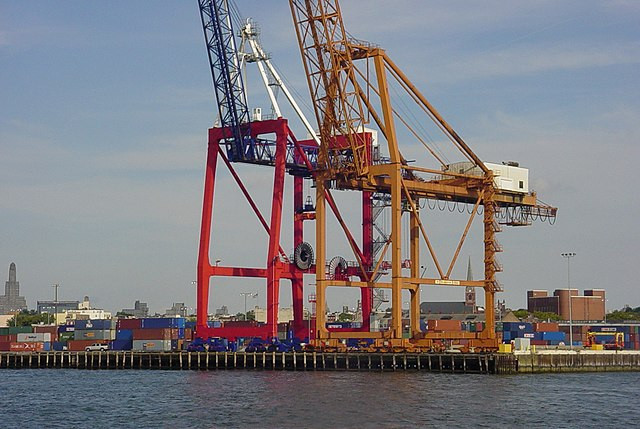The recent strike by the International Longshoremen's Association (ILA) has disrupted half of the U.S.'s ocean shipping network, stalling goods ranging from food to automobiles and sparking concerns about significant economic ramifications. President Joe Biden's administration has put pressure on port employers to raise their offer to dockworkers, following the collapse of negotiations for a new six-year contract.
Biden emphasized the importance of fair treatment for the ILA workers, particularly in light of the record profits seen by foreign ocean carriers since the pandemic. "It's time those ocean carriers offered a strong and fair contract that reflects ILA workers' contribution to our economy," Biden said in a post on X (formerly Twitter).
As of Wednesday, the strike had already backed up more than 38 container vessels at U.S. ports, compared to only three vessels just days prior. The ILA, representing 45,000 workers across 36 ports from Maine to Texas, launched the strike after the U.S. Maritime Alliance's (USMX) offer of a 50% wage increase was deemed insufficient. Harold Daggett, the fiery leader of the ILA, said the union is pushing for more, including a $5 per hour raise each year of the new contract and the end of port automation projects, which he says threaten union jobs.
"We are prepared to fight as long as necessary, to stay out on strike for whatever period of time it takes to get the wages and protections against automation our ILA members deserve," Daggett stated, underscoring the union's resolve. Hundreds of dockworkers have been demonstrating at shipping terminals, notably in New York and New Jersey, as tensions rise over what could become a prolonged labor dispute.
The economic implications of the strike are already becoming clear. Analysts estimate that the disruption could cost the U.S. economy as much as $5 billion per day if the strike continues. Some key industries, including food, automobile, and energy sectors, could face significant supply chain obstacles. Additionally, the strike has impacted ports in major cities such as New York, Baltimore, and Houston-ports that handle a wide range of containerized goods from bananas to clothing and cars.
Retailers, who account for half of all U.S. container shipping volume, have expressed concern as they head into the crucial winter holiday season. Many businesses have scrambled to implement backup plans to mitigate the strike's effects. However, with inflation already a sensitive issue, a prolonged work stoppage could put additional upward pressure on prices, particularly for consumer goods and food items.
The Biden administration has indicated it will not intervene to halt the strike, despite calls from the National Retail Federation and Republican leaders like Virginia Governor Glenn Youngkin to use federal authority to end the work stoppage. Republicans have warned that the strike could have devastating consequences for an economy that is still grappling with inflation. However, the White House appears committed to supporting the ILA's labor efforts and has signaled its intention to monitor the situation closely to ensure that foreign ocean carriers are not engaging in price gouging.
Some economists believe that the strike's impact on GDP could be relatively modest, provided it does not drag on for too long. Morgan Stanley economists have estimated that the strike will trim around 0.1 percentage points off GDP growth per week, with a potential loss of $4.3 billion in imports and exports. "Given that the American economy is on a 3% growth path at this time, we do not expect the strike to derail the trajectory of the domestic economy unless it is long-lasting," said Joseph Brusuelas, chief economist at RSM.
Nonetheless, if the strike continues for an extended period, the economic damage could escalate. Citi analysts warn that perishable goods like fresh fruit could face immediate shortages, while prolonged disruption could slow production in industries like automobiles. Companies had anticipated the potential for a strike and stockpiled some goods ahead of time, but prolonged delays could see supply chains backed up for weeks.





